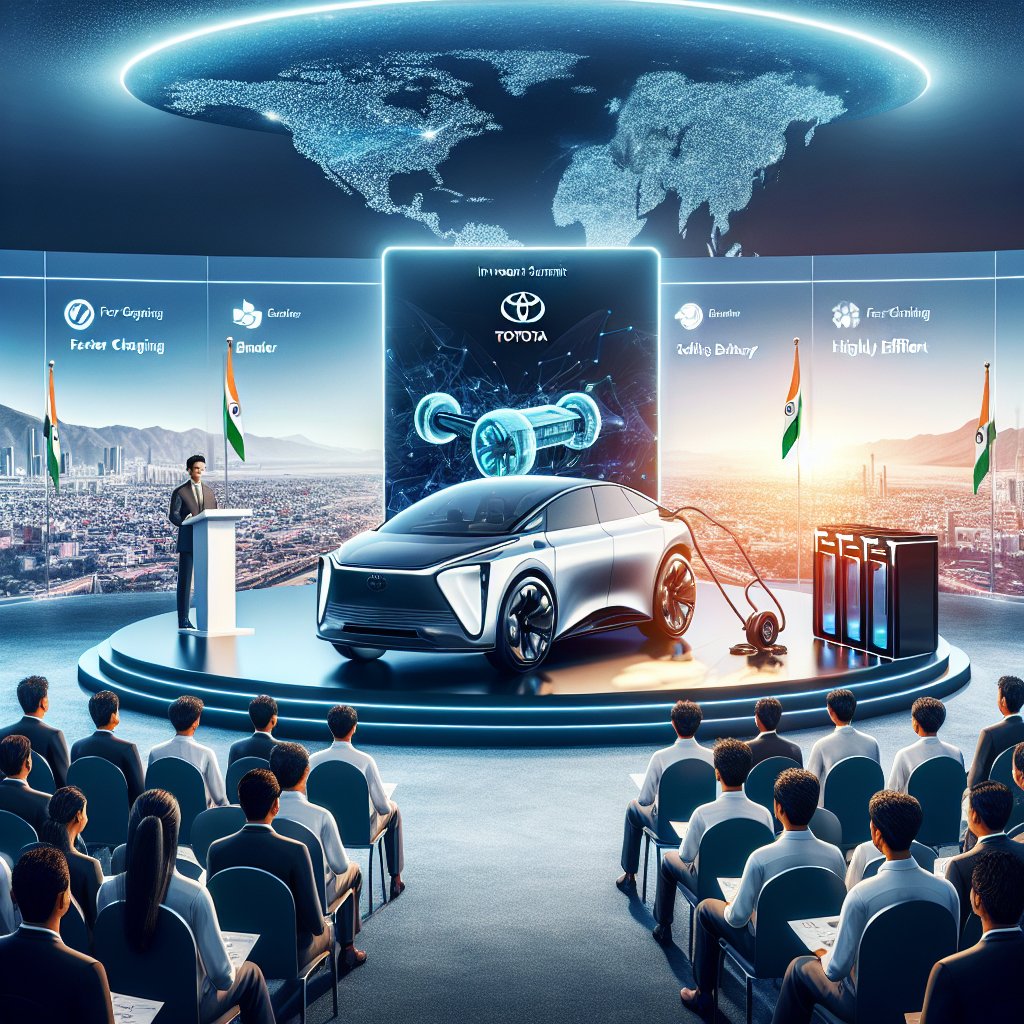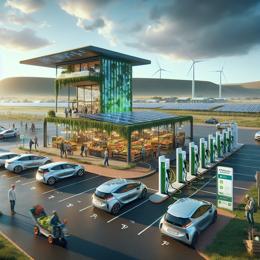Content created by Bailey our AI journalist
Toyota Set to Boost Electric Vehicle Game with Cutting-Edge Solid-State Batteries
In what could be a defining turn for the electric vehicle (EV) industry, Toyota Motor Corporation has pronounced its ambitions to launch a new generation of EVs equipped with solid-state batteries within the next few years. This move represents a pivotal shift in the automotive landscape and a direct strategy to compete with industry leaders like Tesla and other rising EV manufacturers such as China's BYD.
Speaking at an investment summit in Gandhinagar, India, Toyota Kirloskar Motor's Country Head, Vikram Gulati, revealed the company's plan to roll out these advanced technology vehicles. With the promise of faster charging times and extended driving ranges, Toyota's solid-state battery technology could redefine EV efficiency and user experience.
Solid-state batteries distinguish themselves from the current lithium-ion units by offering greater energy density, faster charging capabilities, reduced risks of fire, and longer lifecycle. Toyota and its partner Idemitsu Kosan have disclosed a strategic partnership aimed at the development and mass production of all-solid-state batteries, planned for commercial release between 2027 and 2028. The announcement is a part of a larger strategic pivot for Toyota that was initially unveiled in June.
This technology is not just groundbreaking for its performance benefits but is also anticipated to be a major driving force for the EV uptake worldwide, including markets like India. India's transport minister, Nitin Gadkari, has underscored the growing importance of EVs, projecting sales in India to reach 10-million units by 2030. The national government targets 30% of car sales to be electric by 2030, significantly higher than the 2% recorded in 2023.
Adding further impetus to this transition, Maruti Suzuki, Toyota's partner and India's leading car manufacturer, announced an investment of 350-billion rupees to enhance its production capacity in Gujarat, including a new plant specifically tailored for its own foray into the EV market. Maruti Suzuki also plans to begin exporting electric vehicles to Europe and Japan this year, marking a significant step in its global EV strategy.
The upcoming solid-state batteries from Toyota present a potential quantum leap in EV technology, offering solutions to common concerns related to charging times and range anxiety. Such batteries could charge in roughly 10 minutes, a drastic improvement over current lithium-ion batteries, which typically require several hours for a full charge. Additionally, they boast an impressive range of 1,200 kilometers per charge, more than doubling the capacity of many of today's EVs.
While skeptics have warned of the high costs and technical hurdles associated with solid-state battery technology, Toyota's announcement signals a growing confidence that these challenges can be overcome. Auto industry enthusiasts and environmental advocates alike are eyeing Toyota's next move, with the potential impact of their new EVs set to resonate across global markets.
This pivot to solid-state technology reflects a broader trend in the automotive sector, where manufacturers are quickly transitioning to cleaner and more sustainable vehicle technologies. As Toyota gears up to introduce its solid-state battery-equipped vehicles, the race for EV supremacy intensifies, promising consumers a future where electric mobility is not just sustainable, but exceptionally efficient as well.

